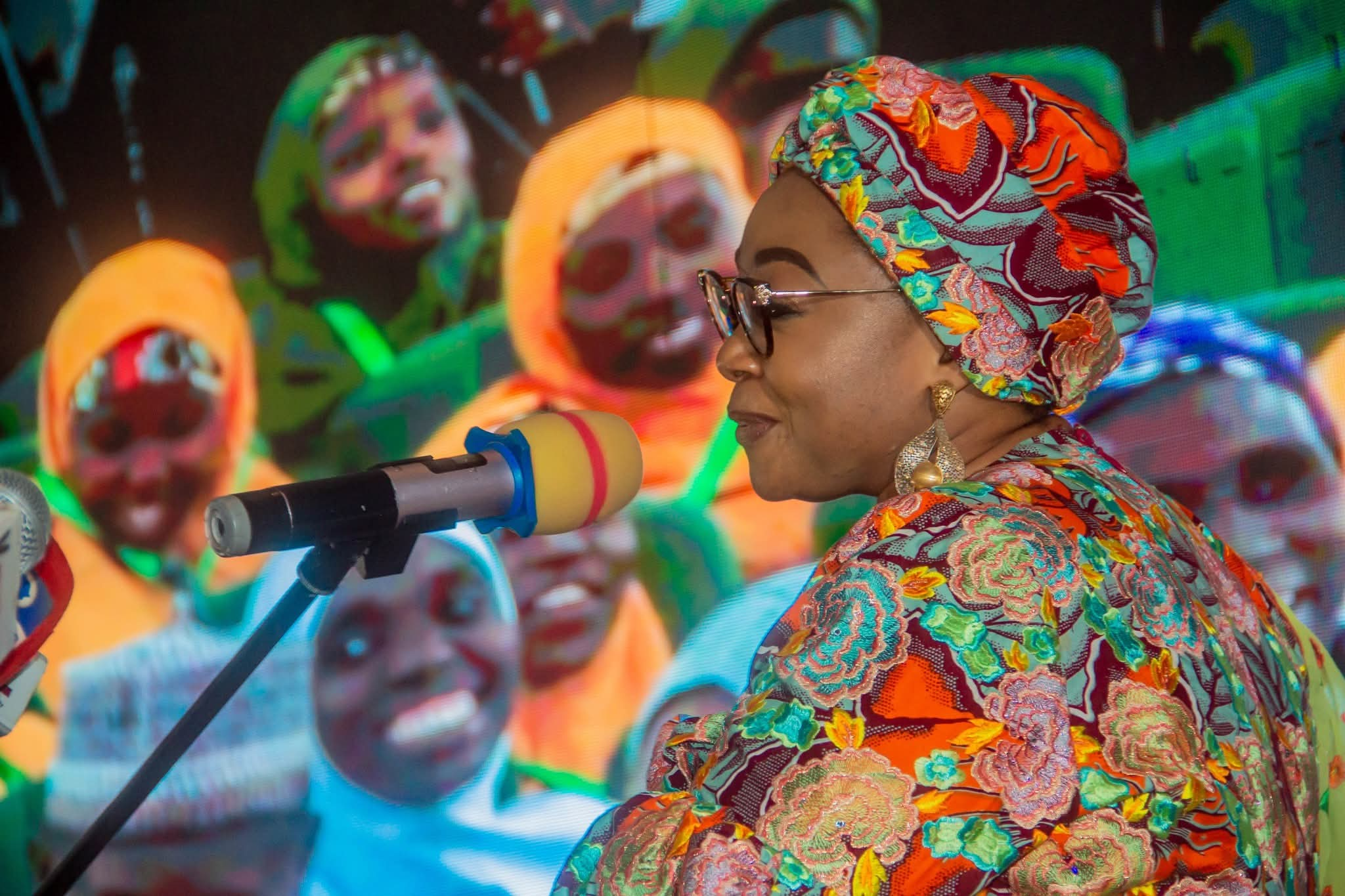FG Reaffirms Commitment to Women’s Economic Empowerment at NFWP Summit in Katsina

Minister Imaan Suleiman-Ibrahim commends Northwest governors, outlines $540m scale-up plan to reach 4.5 million women
Zaharaddeen Ishaq Abubakar — July 2, 2025:
The Federal Government has reaffirmed its commitment to women’s economic empowerment through the Nigeria for Women Project (NFWP), as the Honourable Minister of Women Affairs, Imaan Suleiman-Ibrahim, led a high-level summit held at the Banquet Hall of the Katsina State Government House.
Addressing key stakeholders during the Northwest Scale-Up Summit, the Minister described the gathering as a "defining chapter" in Nigeria’s quest for inclusive growth. She praised efforts by the Katsina State Government and other Northwest leaders for prioritizing the advancement of women through institutional reforms and financial commitments.
“This summit is not just about expanding the Nigeria for Women Project — it is about institutionalizing a future where women are economically empowered, socially secure, and politically visible,” Suleiman-Ibrahim stated.
The Minister particularly hailed Governor Dikko Umaru Radda for what she termed “gender-sensitive governance,” citing his administration’s ₦4 billion budget for women’s empowerment and ₦1 billion allocation in 2024 to tackle sexual and gender-based violence.
She also applauded Governor Radda for ensuring a 40% rural development allocation to women, as well as establishing women affairs desks in all 34 local government areas of the state. Describing him as a "He-for-She champion", Suleiman-Ibrahim said Katsina State serves as a model for gender inclusion nationwide.
Scaling Up to Reach 4.5 Million Women Nationwide
Speaking on the NFWP’s progress, the Minister revealed that the pilot phase, which successfully empowered 500,000 women with $100 million in funding, is now scaling up to reach 4.5 million women across 32 states, backed by a projected $540 million investment.
She emphasized that the NFWP is not a social grant, but a strategic national investment with measurable outcomes, robust monitoring frameworks, and long-term sustainability. One of the project's major strategies is the formation of Women Affinity Groups (WAGs), which facilitate savings, access to credit, and skill-building.
“These groups have demonstrated results — including a 30% increase in household income and a 40% drop in informal credit dependency,” she added.
Despite the progress, the Minister raised concerns about the high rate of financial exclusion in the Northwest, where 47% of adults reportedly lack access to formal or informal financial services, according to 2023 EFInA data.
Call for Collective Action and Political Will
Suleiman-Ibrahim called for sustained collaboration between all tiers of government, community leaders, and development partners to deliver results.
“Empowerment is not delivered — it is co-created,” she said. “We must ensure rigorous, data-driven, and citizen-centred implementation.”
She further urged state governments to release their counterpart funds promptly and strengthen leadership within state project coordination units.
Looking ahead, she announced a new national program titled the Renewed Hope Social Impact and Advancement Project for Women, Children and the Vulnerable, which will include a blended finance facility to attract private and philanthropic capital into women-led cooperatives and local value chains.
Appreciation and Final Remarks
The Minister expressed gratitude to President Bola Ahmed Tinubu for prioritizing gender equality under the Renewed Hope Agenda, and to First Lady Senator Oluremi Tinubu for her compassion and advocacy on behalf of women and families.
“We are not building isolated pockets of change — we are creating a national ecosystem of empowered superwomen,” Suleiman-Ibrahim concluded.
The summit was attended by deputy governors from Jigawa and Zamfara states, commissioners of women affairs from across the Northwest, World Bank officials, and local coordinators of the Nigeria for Women Project.

